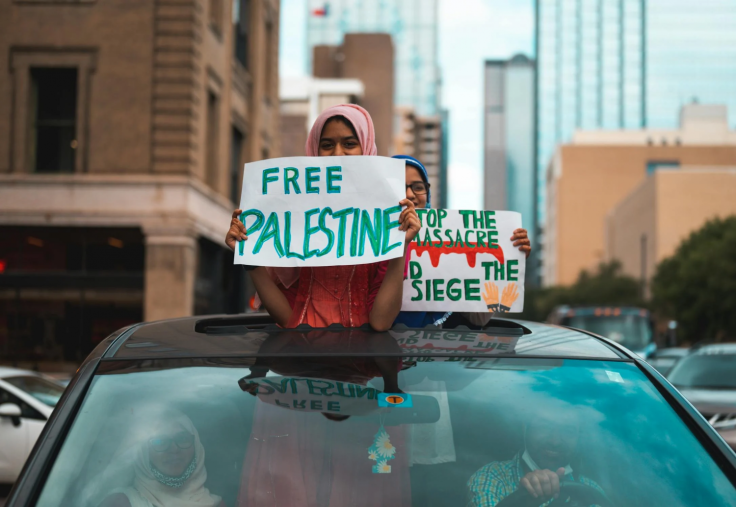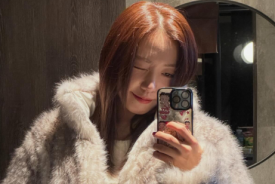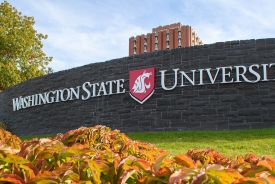American Model of Human Rights Under Scrutiny: Crackdown on Pro-Palestinian Protests in Higher Education
ByOver the past months, a wave of pro-Palestinian protests has swept through college campuses in the United States, shaking up the higher-education landscape in America.
The protests, fueled by student and faculty dissatisfaction with the involvement in and support for Israel's occupation of Palestine coming from the United States, have fanned a tremendous flap and opened very pertinent questions about the American model of human rights. These crackdowns have not only exposed deep problems within American universities but put a glaring spotlight, more broadly, on what is at stake for civil liberties and freedom of speech in the United States.

Pro-Palestinian Protests: Nationwide Movement
The wave of pro-Palestinian demonstrations started on Columbia University campus and a few months later swept over 80 campuses nationally. Students were camping in tent cities, holding sit-ins, and rallying to force universities to disclose and divest from investments connected to the Israeli occupation of Palestine. The protests react to the rising violence in Gaza, intended to point out massive human rights violations occurring there.
These protests in intensity and breadth feel like the anti-Vietnam War demonstrations of the 1960s and 1970s, in which students worked to hold accountable their institutions for perpetrating an unjust conflict. Hundreds of students have been arrested, suspended, or outright expelled by university administrators and law enforcement, who responded with a firm hand. Pioneering these initiatives have been institutions like Yale University, the University of Southern California, Vanderbilt University, and the University of Minnesota, all of which elevated the crackdown at their schools into a far-reaching national debate about free speech and academic freedom.
Implications on Free Speech and Academic Freedom
Harsh responses to such pro-Palestinian protests have huge implications for free speech and academic freedom within American higher education. College students have been suspended and expelled. The police called to campus to disperse peaceful protests-- a situation that many fret is increasingly normalized on campuses. Campuses that used to be a beacon of support for free intellectual inquiry and expression are now seen by many as increasingly hostile to dissenting voices, particularly against U.S. foreign policy.
This crackdown further exposes the double standards universities maintain over handling protests. While some forms of protest are condoned, others are brutally repressed. This kind of selective enforcement erodes the credibility of any university as a space for open dialogue and critical inquiry. It further indicates that protection for human rights and civil liberties remains at the whim of those in power.
Larger Implications for the American Model of Human Rights
The stifling of pro-Palestinian demonstrations on American campuses is part of a larger problem: the inconsistency and politicization of the American posture on human rights. The United States has ordained itself as the protector of human rights around the world. However, all too often it has limited its promise only to paper. For instance, the use of veto power to block Security Council resolutions criticizing the policy of Israel betrays a willingness to sidetrack human rights protection in favor of political alliances.
This rhetoric-reality chasm at the heart of American foreign policy has deep implications for the international credibility of the United States. By attacking free expression among its very own people, most especially in places of learning, America should logically take a meek tone in advancing human rights elsewhere around the world. These attempts to suppress pro-Palestinian protests serve as a sobering reminder that the struggle for human rights is by no means one limited to faraway lands, but rather for American society itself.
The recent crackdown on pro-Palestinian protests at American universities serves to expose deep flaws within the liberal American model of human rights. Severe reactions to peaceful demonstrations have resulted in questions being asked that go straight to the core of free speech, academic liberty, and higher education. The more deep-seated is the issue of how human rights come to be mainly honored as a matter of political expediency. On that note, there arises an urgent need to refocus attention on safeguarding civil liberties and creating an environment where thoughts of diversity can flow freely as universities struggle together with the country at large to get a grip on these issues.
© 2026 University Herald, All rights reserved. Do not reproduce without permission.








